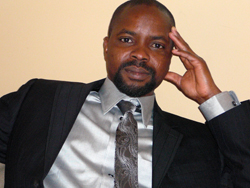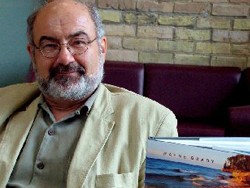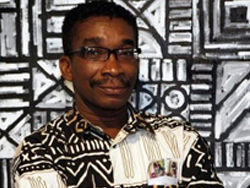Editorial
A ‘Tranströmeration’ of the Nobel
Amatoritsero Ede
 I remember walking through the rather sparse poetry section of Chapters bookstores downtown recently and stopping for a moment before a Tomas Tranströmer collection – probably fresh off the press, rushed out to meet the galloping demands attending a Nobel moment. My instinct was to buy a copy of the collected works. But I demurred. Would I be giving given a nod of encouragement to the wise but befuddled Swedish heads in Stockholm? The instinct of a poetry lover took over.
I remember walking through the rather sparse poetry section of Chapters bookstores downtown recently and stopping for a moment before a Tomas Tranströmer collection – probably fresh off the press, rushed out to meet the galloping demands attending a Nobel moment. My instinct was to buy a copy of the collected works. But I demurred. Would I be giving given a nod of encouragement to the wise but befuddled Swedish heads in Stockholm? The instinct of a poetry lover took over.
I flipped through the work. Apart from some flashes of brilliance, I did not think this effort was worth the prize it has been burdened with. General public response to the news of this particular award has ranged from dismay to glee and disillusion. I am dismayed. According to the awards committee, Tranströmer won "because, through his condensed, translucent images, he gives us fresh access to reality." From my own readings of the poet's work, I understand 'translucent' to be a euphemism for either 'prosaic' or 'light verse.' There is an example of Carol Rumens Poem of the Week in a London Guardian selection from Tranströmer's work, beginning like this: "In the black hotel a child is asleep. And outside: the winter night where the wide-eyed dice roll...
Roundtable
The Tree that Owned Itself
Poet Amatoritsero Ede in conversation with Wayne Grady, Creative Nonfiction Writer
 Amatoritsero Ede: We are happy to have you hold a conversation with us at MTLS. This is unique in that most writers we have interviewed have been mostly novelists. How would you describe your writing?
Amatoritsero Ede: We are happy to have you hold a conversation with us at MTLS. This is unique in that most writers we have interviewed have been mostly novelists. How would you describe your writing?
Wayne Grady: Thank you. For most of my writing life I have written nonfiction, much of it creative nonfiction, even when I was writing magazine journalism. As far back as the early 1980s I was writing creative nonfiction for Saturday Night magazine, although we didn’t call it that at the time: literary journalism, I think, was the term. When I moved into the country near Kingston, Ontario, and started working for Harrowsmith magazine in 1984, I began to become more interested in nature writing. Because of my magazine background, I naturally took to the essay form: the nature essay, the travel essay, and the personal essay.
Read More
Essays
The Politics of Exclusion: The Undue Fixation of Western-Based African Curators on Contemporary African Diaspora Artists (Part 2)
Rikki Wemega-Kwawu
 Below is an excerpt of a rare interview El Anatsui granted the Art Critic Denrele Ogunwa in 1995, when he had a solo show of his work at the October Gallery in London.
Below is an excerpt of a rare interview El Anatsui granted the Art Critic Denrele Ogunwa in 1995, when he had a solo show of his work at the October Gallery in London.
Anatsui took the world by storm with that exposition, which culminated in the production of his famous monologue, El Anatsui: A Sculpted History of Africa. This interview is culled from West Africa magazine, No. 4069, 9 – 15 October, 1995. (pp. 1575 – 1577), and it is captioned, “A Man of the Earth - Denrele Ogunwa talks to a foremost African Sculptor.” Relax and read on. This is what Anatsui himself has to say about his work, his inspiration and stay in Africa:
Read More



